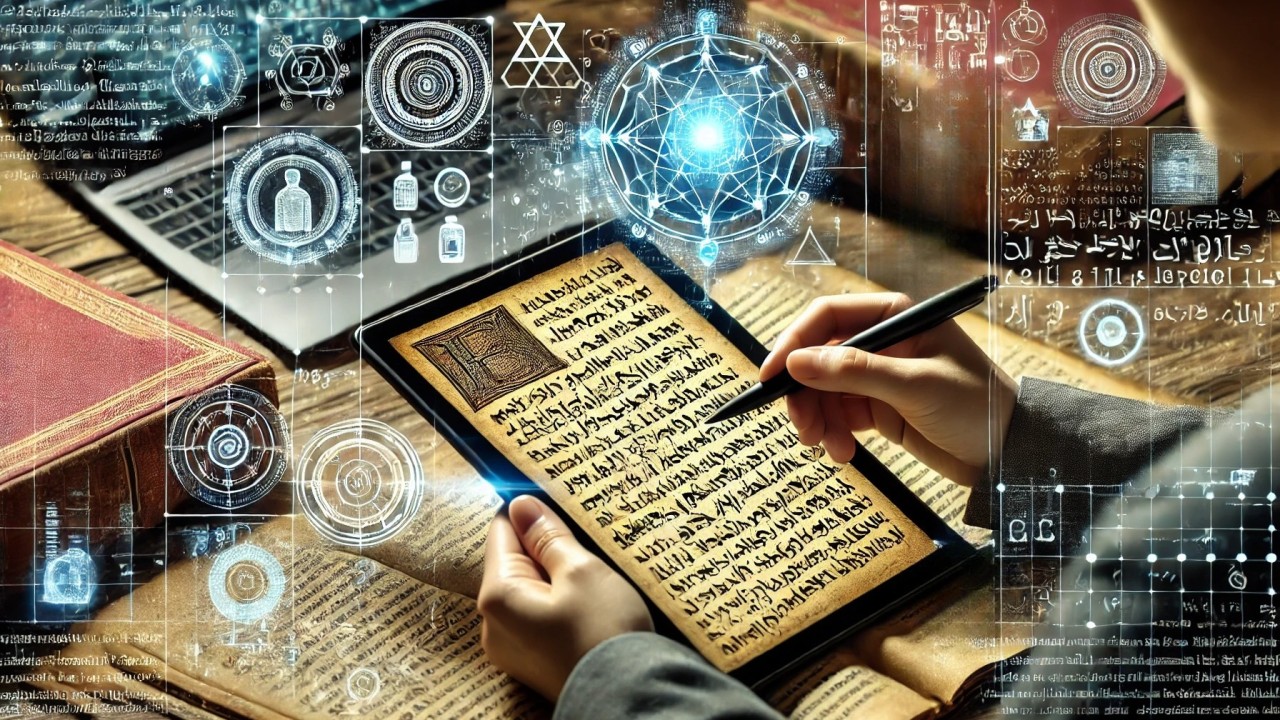The Language of Liberation: Saving Africa’s Tongues Through Digital Tools

The Language of Liberation: Saving Africa’s Tongues Through Digital Tools
Introduction
Africa is home to over 2,000 languages, each a vessel of culture, identity, and ancestral wisdom. Yet, many of these languages face extinction due to globalization, urbanization, and the dominance of colonial languages in education and media. In Nigeria alone, with its rich tapestry of over 500 indigenous languages, the urgency to preserve linguistic heritage is paramount. Digital tools have emerged as powerful allies in this endeavor, offering innovative solutions to document, teach, and revitalize endangered tongues.
The Digital Threat and Opportunity
The digital age presents a paradox: while it accelerates the erosion of minority languages through homogenized content, it also offers unprecedented tools for preservation. Technologies such as mobile applications, artificial intelligence (AI), and blockchain are being harnessed to document and teach indigenous languages. For instance, AI-driven translation services and language learning apps are making it easier to access and learn African languages, ensuring they remain vibrant in the digital era.
Nigeria's Linguistic Landscape
Nigeria's linguistic diversity is both a cultural treasure and a challenge. Languages like Yoruba, Igbo, and Hausa have millions of speakers, while others are spoken by small communities and are at risk of disappearing. Efforts to preserve these languages are crucial for maintaining cultural identity and heritage. Digital initiatives are playing a significant role in this preservation, offering platforms for documentation, education, and revitalization.
Digital Tools in Action
Mobile Applications
Apps like Nkenne are at the forefront of digital language preservation. Nkenne offers interactive lessons in various African languages, integrating cultural contexts to enhance learning. By gamifying language learning and providing accessible content, such apps are engaging younger generations and diaspora communities in reconnecting with their linguistic roots.
AI and Machine Learning
Artificial intelligence is being utilized to develop speech recognition and translation tools for African languages. These technologies not only facilitate communication but also aid in creating digital archives of endangered languages, ensuring their phonetics and syntax are preserved for future generations.
Digital Libraries and Archives
Digital repositories are being established to store texts, audio recordings, and videos in indigenous languages. These archives serve as educational resources and cultural records, accessible to researchers, educators, and the public. They play a vital role in documenting languages that may lack written traditions, preserving oral histories and traditions.
The Role of Foundations and NGOs
Spiritual Development Foundations
Organizations focusing on spiritual development in Nigeria recognize the intrinsic link between language and spirituality. By promoting indigenous languages, they ensure that spiritual practices and teachings are preserved and passed down authentically. These foundations often incorporate language preservation into their broader missions of cultural and spiritual revitalization.
Empowerment Foundations
Empowerment foundations in Nigeria are leveraging digital tools to provide language education, especially in underserved communities. By offering language learning resources and training, they empower individuals to connect with their heritage, enhance communication, and access broader opportunities.
Lightworkers Movement Foundation
The Lightworkers Movement Foundation integrates language preservation into its holistic approach to personal and community development. Recognizing language as a conduit for cultural expression and spiritual growth, the foundation supports initiatives that document and teach indigenous languages, fostering a deeper connection to ancestral wisdom.
Challenges and Considerations
Despite the promise of digital tools, several challenges persist:
- Resource Limitations: Developing and maintaining language preservation technologies require funding, technical expertise, and community engagement.
- Digital Divide: Access to technology remains uneven, with rural and marginalized communities often lacking the infrastructure to benefit from digital initiatives.
- Standardization: Many African languages have diverse dialects and lack standardized orthographies, complicating the development of learning materials and digital tools.
- Cultural Sensitivity: Efforts must be community-driven, respecting the cultural contexts and preferences of language speakers to ensure authenticity and acceptance.
The Path Forward
To effectively preserve Africa's linguistic heritage through digital tools, a multifaceted approach is necessary:
- Collaborative Efforts: Partnerships between governments, NGOs, tech companies, and communities can pool resources and expertise.
- Inclusive Policies: Governments should enact policies that support language preservation, including integrating indigenous languages into education systems and official communications.
- Capacity Building: Training programs can equip community members with the skills to develop and manage digital language resources.
- Awareness Campaigns: Promoting the value of linguistic diversity can foster pride and encourage participation in preservation efforts.
Conclusion
The preservation of Africa's languages is not merely about saving words; it's about safeguarding identities, histories, and worldviews. Digital tools offer a powerful means to document, teach, and revitalize these languages, ensuring they continue to thrive in the modern world. By embracing technology and fostering collaborative, culturally sensitive approaches, we can ensure that Africa's linguistic heritage remains a living, dynamic force for generations to come.
XStore Team
We share insights and updates from the XStore team.